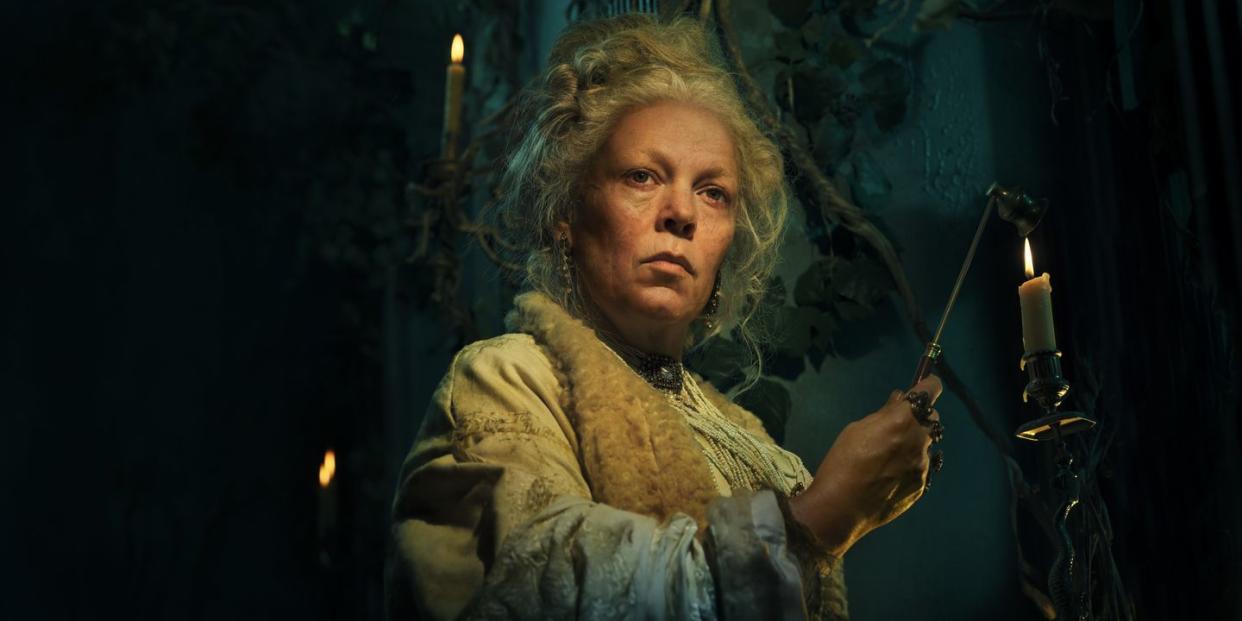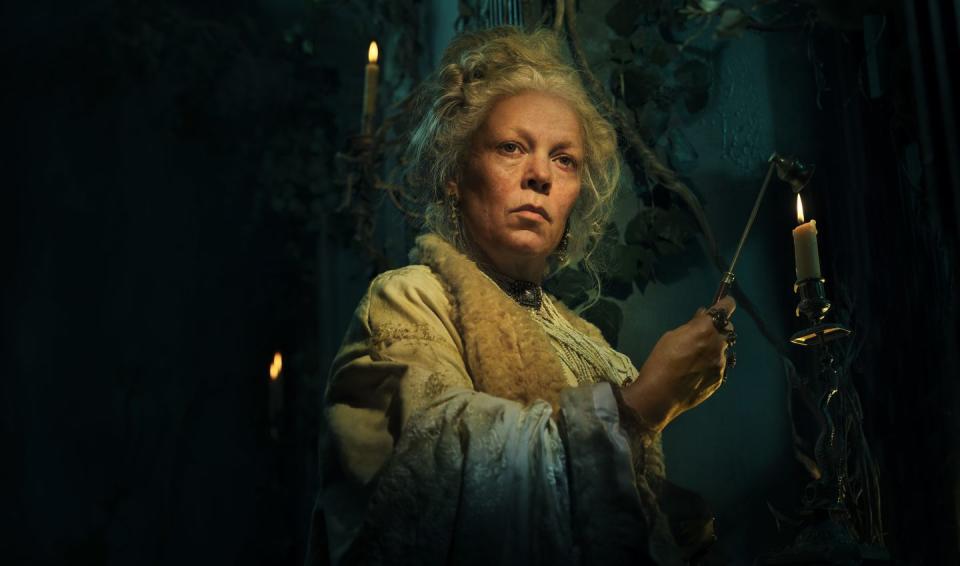Peaky Blinders boss's Great Expectations adaptation fails to deliver

Great Expectations has all the ingredients for a delicious retelling of a Dickens classic but ends up bland on the palate.
This was not the outcome we had predicted. In fact our… expectations… were exceedingly high given the vivid world its creator, Stephen Knight, has managed to cook up.
Be sure to watch your footing as you step inside his 19th-century London lest you tread on the pungent mulch of the city's grimy streets, where corruption reigns and ambition turns rancid under the watchful eye of the dishonest.
It truly feels alive, its maggoty touch crawling into reality. Yet, though thrilling to see and thick with atmosphere, the series somehow manages to still feel flat.
The world-building acts as a dense overlay, hoping to distract us from the fact that this reimagining isn't as compelling as it should be.

Olivia Colman's eccentric Miss Havisham is the perfect example of how the characters' personal stories fall short of great characterisation, resulting in apathy towards their journeys.
It boggles the mind how Colman's enticing portrayal of the bitter, twisted, manipulative Miss Havisham could fail to garner interest in her motives or her arc. But fail it does.
Pip's (Fionn Whitehead) acquisition of status is as tiresome to watch as his supposed burning desire for Estella (The Tourist's Shalom Brune-Franklin), which comes across like tepid tea.
There's no real tension between the two despite their attraction seeming so natural on paper. While their similarities — an innate desire to escape their perceived fate — should create a natural ground for intimacy, the chemistry is absent, as are any meaningful scenes between the two that would explain their feelings for one another.

Equally, despite sparking initial intrigue with their rivalry, Magwitch (Johnny Harris) and Compeyson (Trystan Gravelle)'s feud loses steam quickly, intrigue seeping out of every hole they puncture in one another.
Their story feels stagnated in their disdain for one another and is slow to progress beyond that. Any attempt to effectively tease the root of their deep-seated hatred has the opposite effect. Those familiar with the text already know the answer, and so their dalliance, without context, is tedious.
By the midway mark, the storylines still haven't come into sharp focus, and sadly, the plot points fail to connect.
That said, it's not all doom and gloom.
Despite 12 previous screen adaptations, Knight still manages to find some shiny new spokes to add to this reinvented wheel — starting with the casting.
Embracing the direction of modern period-drama casting choices, Knight leans into the realisation that London during the Victorian era was more ethnically diverse than traditionally reflected in other Great Expectations adaptations.

What's also prevalent is the strong anti-colonial messages first outlined by Pip's deep disgust with the idea of providing shackles and chains for slaves.
The then-blacksmith's apprentice is resolved in his decision not to buckle under pressure or the enticement of money.
This mindset is cemented further when Magwitch attacks the British Empire, stating that it is built on the lies of privileged men.
The message is clear: Colonisation is a pustule that will not be tolerated by our protagonists, whose vantage points we are sympathetic to. Even within the corrupt backdrop of this world, the injustice of colonialism is ugly and intolerable.
Still, Great Expectations lacks the excitement needed to drive the plot forward — robbing this beautiful, atmospheric watch of the meaty substance needed to intrigue viewers at the same level of intensity.
Great Expectations will air on BBC One and BBC iPlayer on Sunday 26th.
You Might Also Like

 Yahoo News
Yahoo News 
